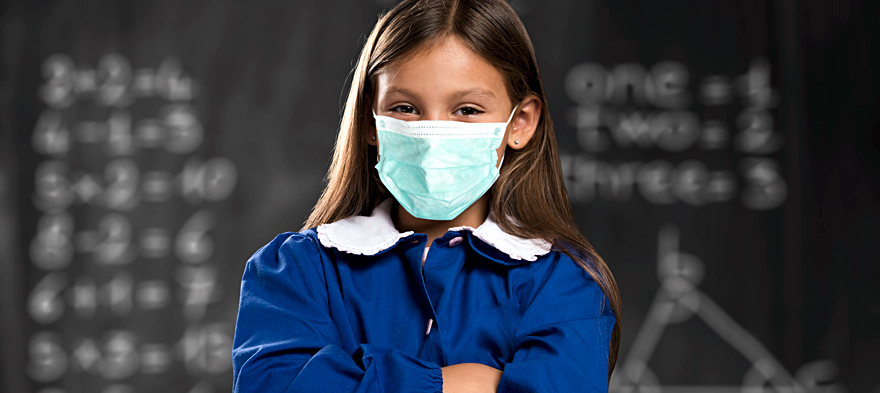
Feb 3, 2022 12:00:00 AM
by Laura Waters
Imagine that you go in for your annual medical bloodwork and something alarming turns up: say, your platelets are through the roof, a possible indicator of cancer. Does your doctor say, “Let’s wait til next year and test again” or do they intervene immediately to ensure you receive proper treatment?
Dumb question, right?
Now let’s move from imagination to reality: Zearn, a non-profit math program used by 25% of all U.S. elementary school students, had meticulously documented the drop in math proficiency during school closures from the COVID-19 pandemic, finding that students enrolled in low-income schools were hit harder than students enrolled in higher-income schools. But this week Zearn’s CEO Shalinee Sharma released a new report that shows something just as alarming as a scary lab test result: Instead of increased math proficiency correlating with in-class instruction, the gaps were bigger in places where COVID-19 infections were highest, even with open schools.
Why? Students attending low-income districts aren’t logging onto their Zearn program.
That’s new: From October to December 2021 participation among students from all socio-economic strata was similar. But [pullquote]this January amid the Omicron surge, participation among students who attend low-income schools dropped 13%, compared to a drop of only 2% among students who attend schools in wealthier districts.[/pullquote]
From the report:
The result is that while schools are open amidst Omicron surges, students from low-income communities are missing critical instructional time. While Omicron is everywhere, its inequitable effects are not. Students who missed the most learning during the 2020-21 school year are now missing the most again.
This new data points to a troubling trend, what Sharma calls “a new and significant impact to their learning” for students in low-income schools while “students in more affluent communities are largely unaffected.” She believes low-income districts are experiencing higher student and teacher absentee rates; in addition, we haven’t fully solved the digital divide.
So what do we do? Do we ignore this precious real-time data (often academic proficiency results are a year late and a dollar short) and wait til next year for new test results? Or do we act now to ensure that all children, regardless of income, have the opportunity to master essential knowledge that schools are responsible for providing? After all, money is not an issue, not with the Biden Administration’s $125 billion COVID emergency grant to America’s K-12 schools and there are research-based interventions that will help students in low-income schools begin the process of catching up.
But unless we act quickly—just as we would with a worrisome blood test result—children who have been denied learning will fall further and further behind. Nothing could be more unjust.
Laura Waters is the founder and managing editor of New Jersey Education Report, formerly a senior writer/editor with brightbeam. Laura writes about New Jersey and New York education policy and politics. As the daughter of New York City educators and parent of a son with special needs, she writes frequently about the need to listen to families and ensure access to good public school options for all. She is based in New Jersey, where she and her husband have raised four children. She recently finished serving 12 years on her local school board in Lawrence, New Jersey, where she was president for nine of those years. Early in her career, she taught writing to low-income students of color at SUNY Binghamton through an Educational Opportunity Program.
The story you tell yourself about your own math ability tends to become true. This isn’t some Oprah aphorism about attracting what you want from the universe. Well, I guess it kind of is, but...
If you have a child with disabilities, you’re not alone: According to the latest data, over 7 million American schoolchildren — 14% of all students ages 3-21 — are classified as eligible for special...
The fight for educational equity has never been just about schools. The real North Star for this work is providing opportunities for each child to thrive into adulthood. This means that our advocacy...
Your donations support the voices who challenge decision makers to provide the learning opportunities all children need to thrive.
Ed Post is the flagship website platform of brightbeam, a 501(c3) network of education activists and influencers demanding a better education and a brighter future for every child.
© 2020–2024 brightbeam. All rights reserved.
Leave a Comment